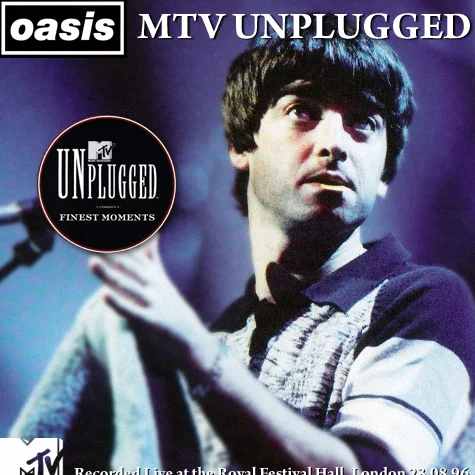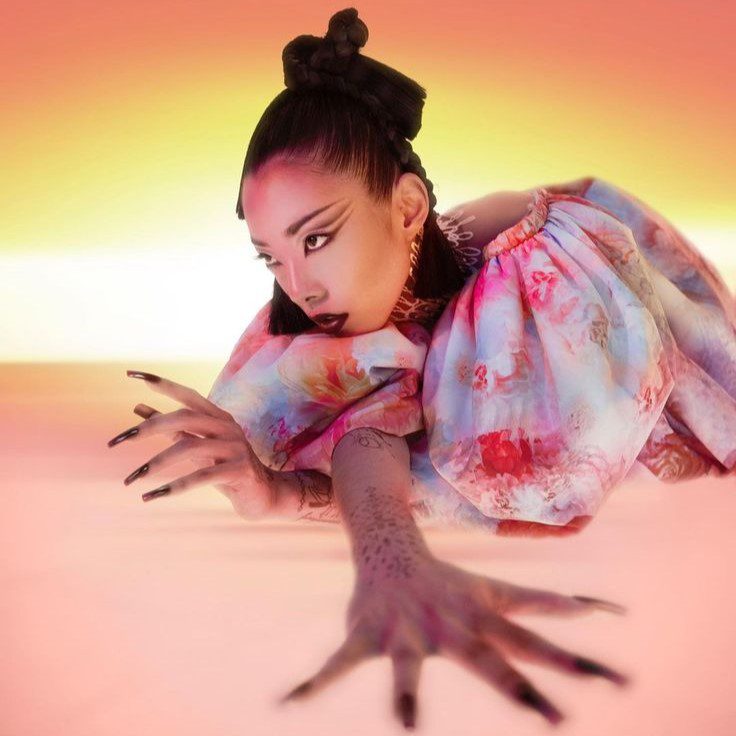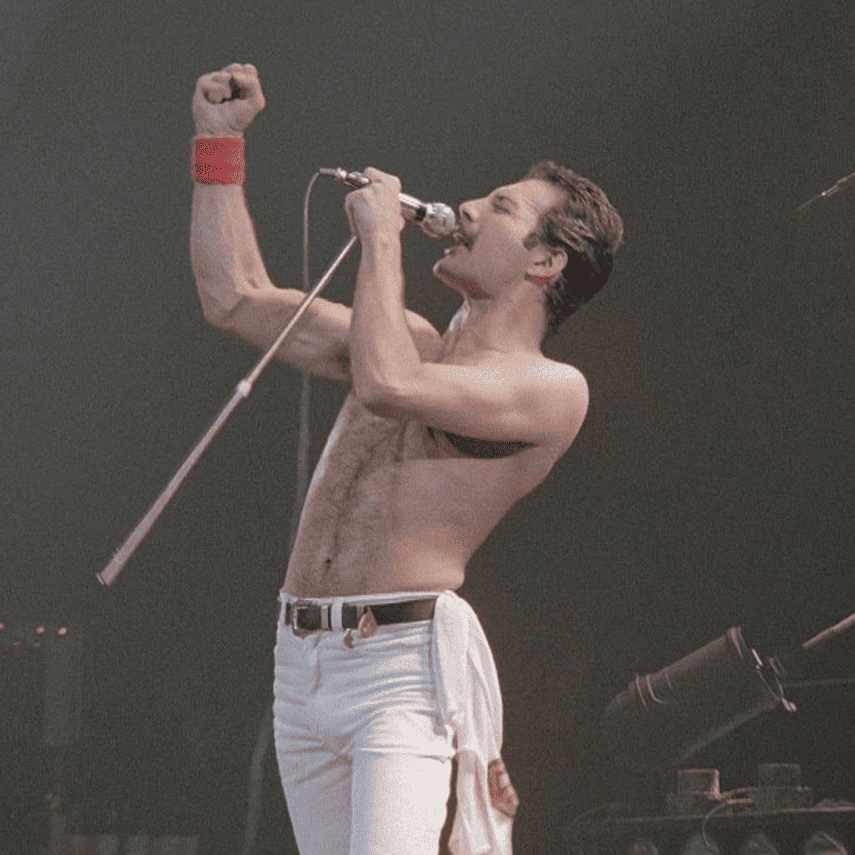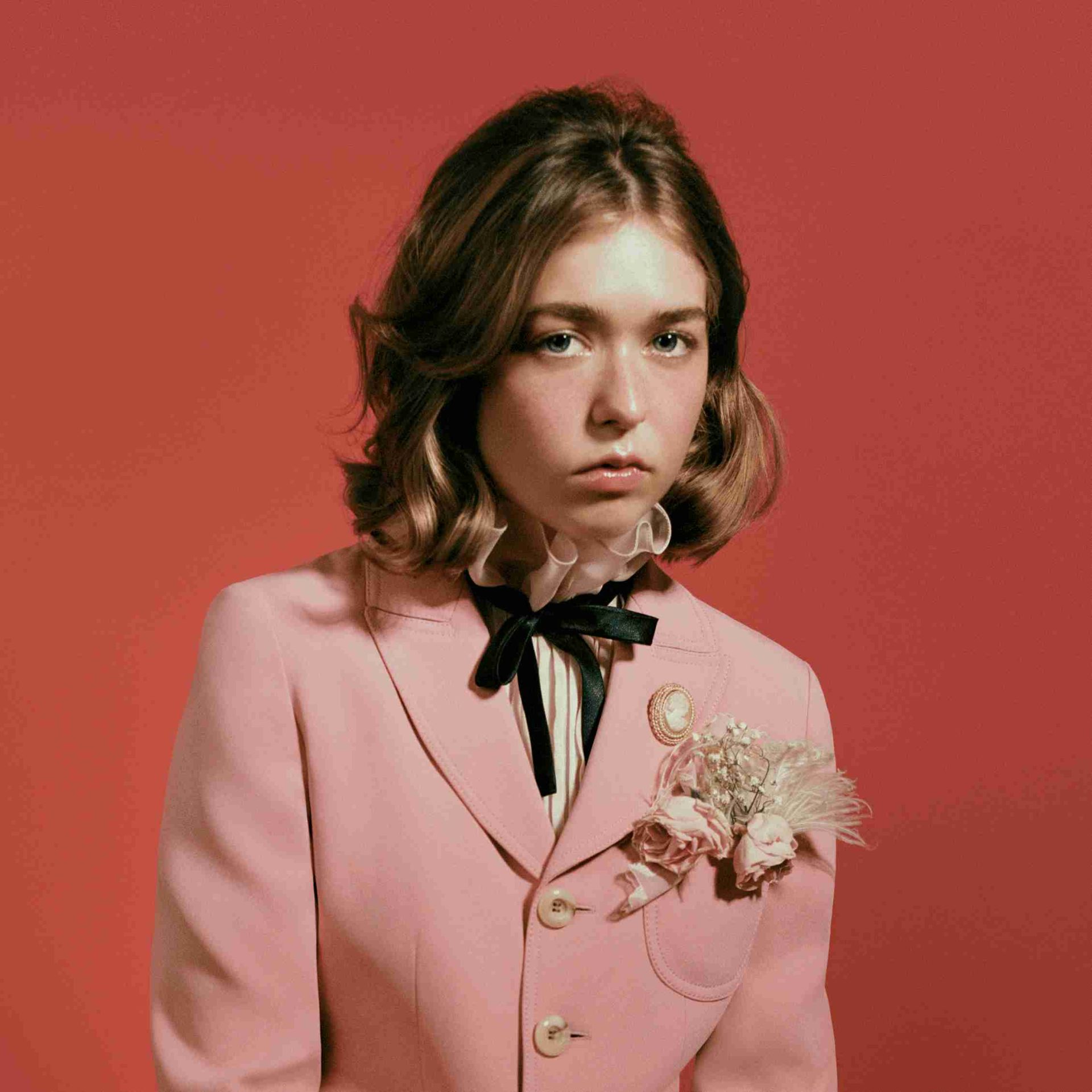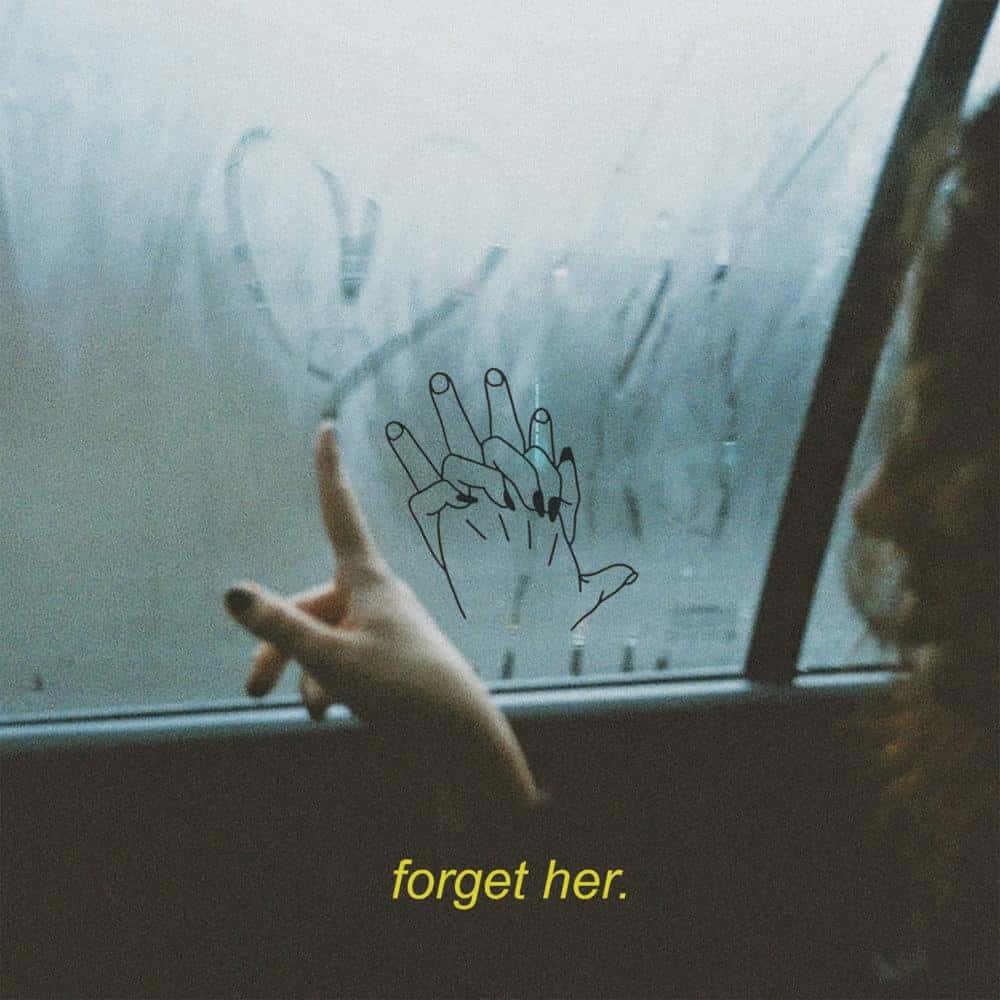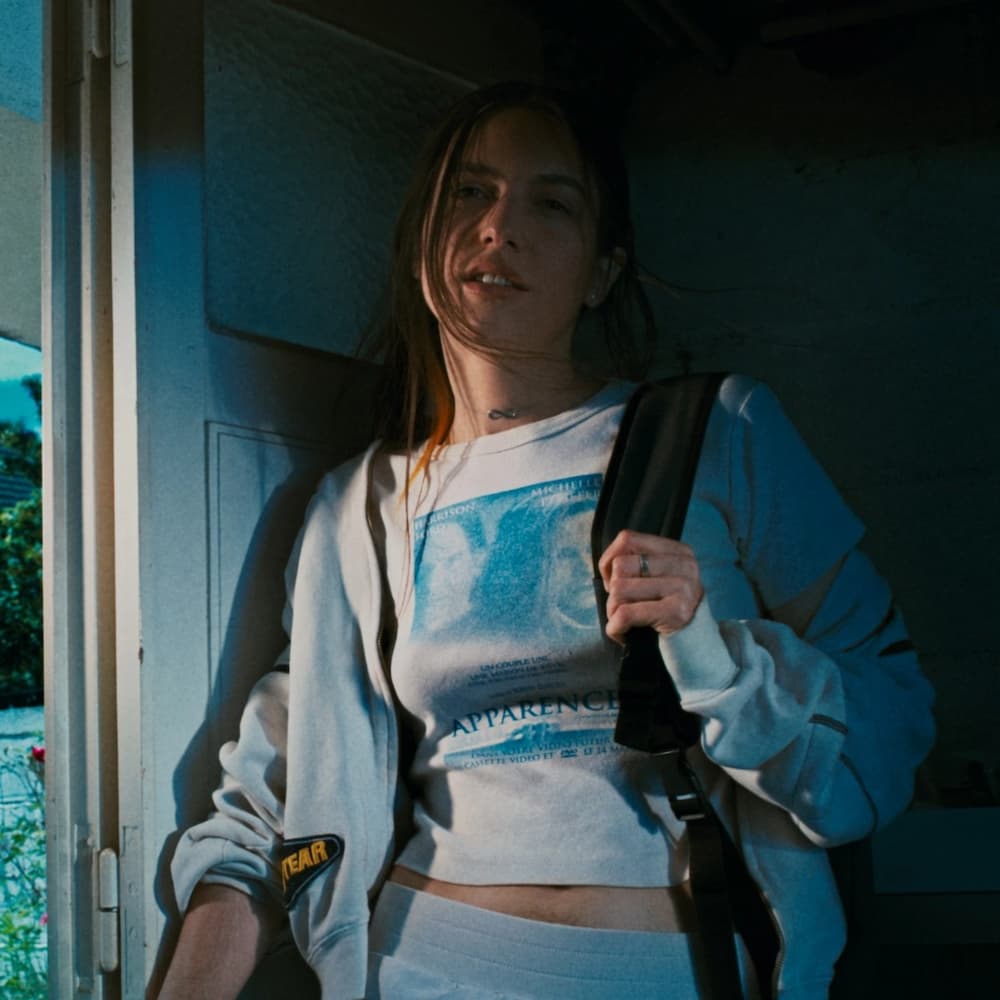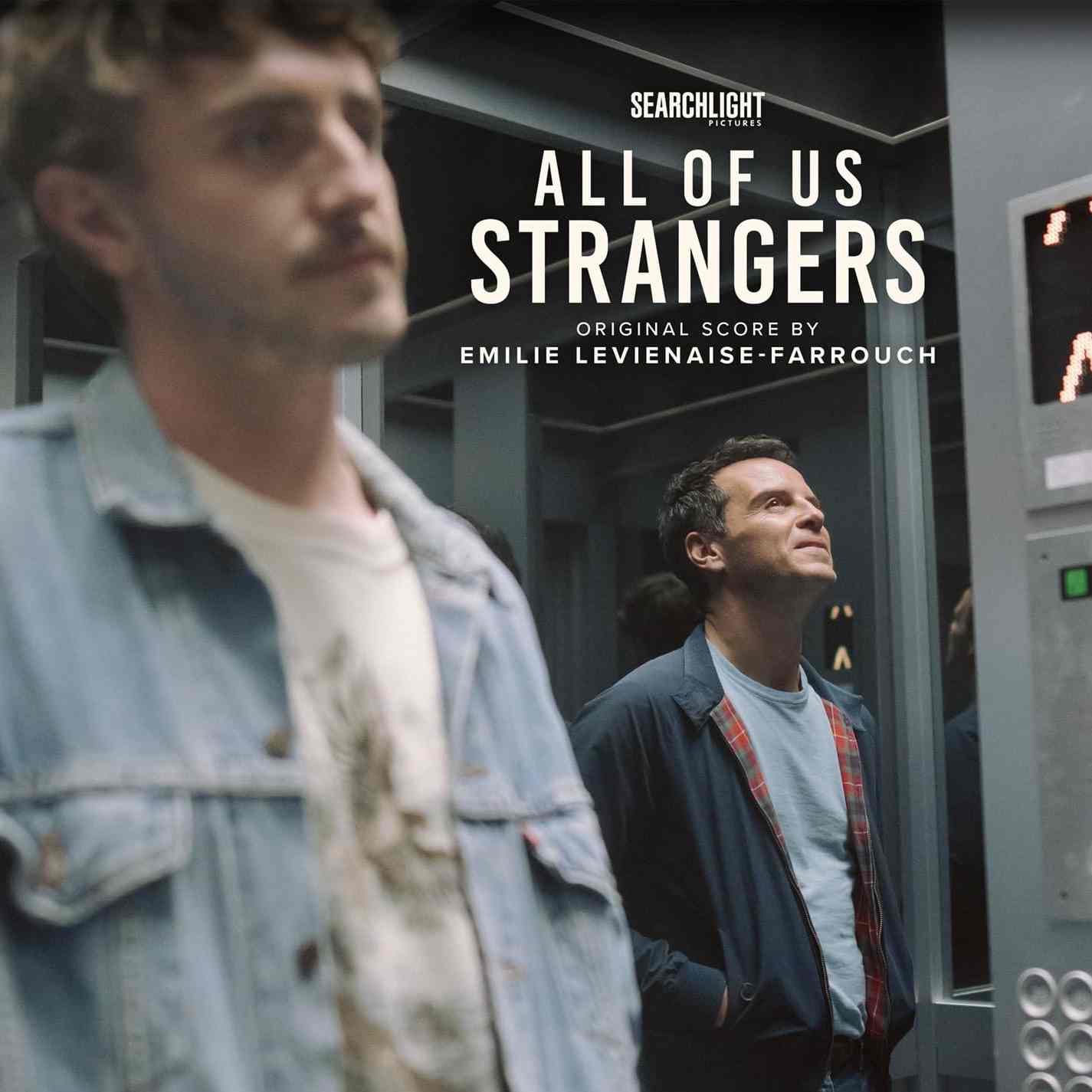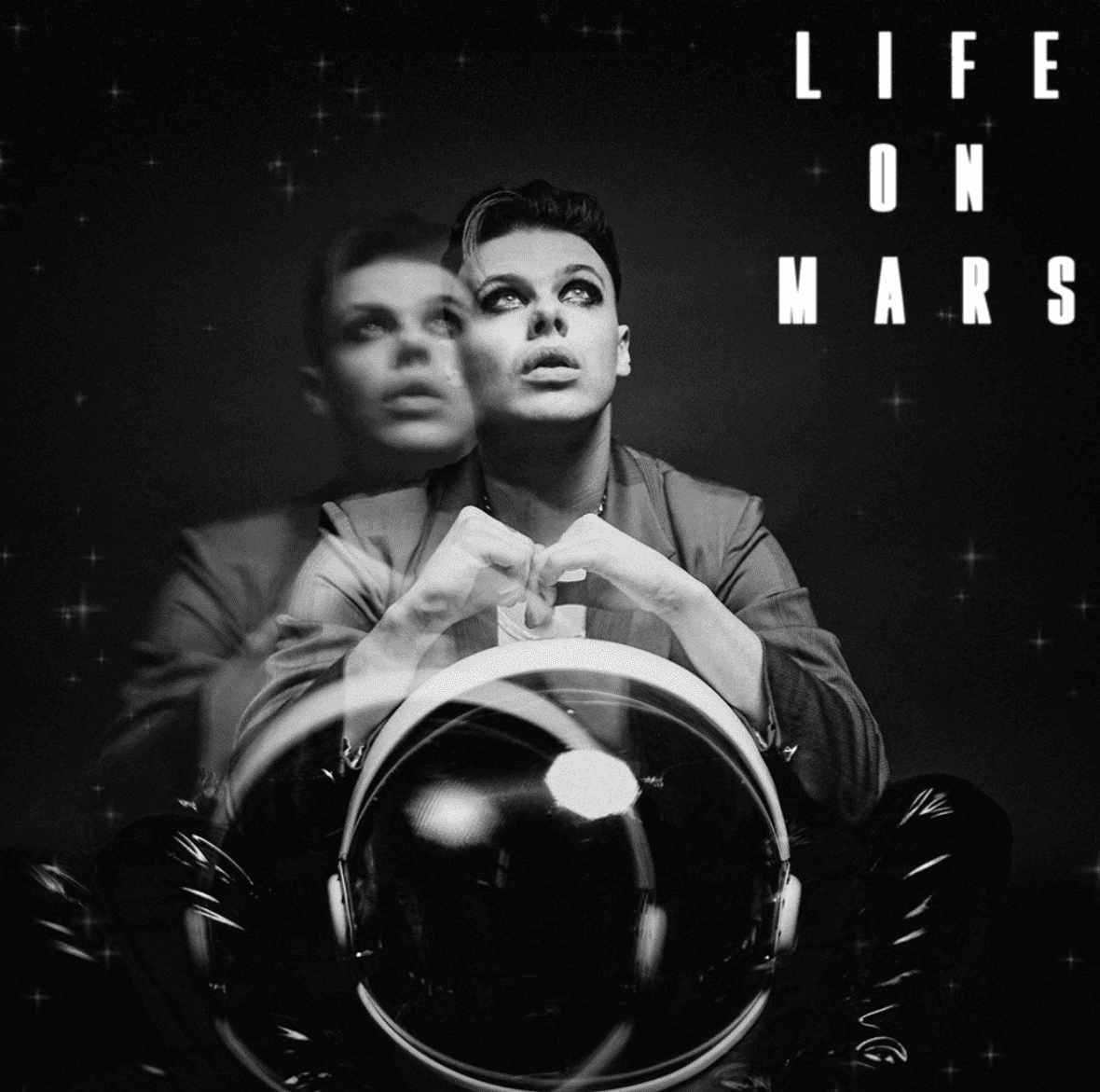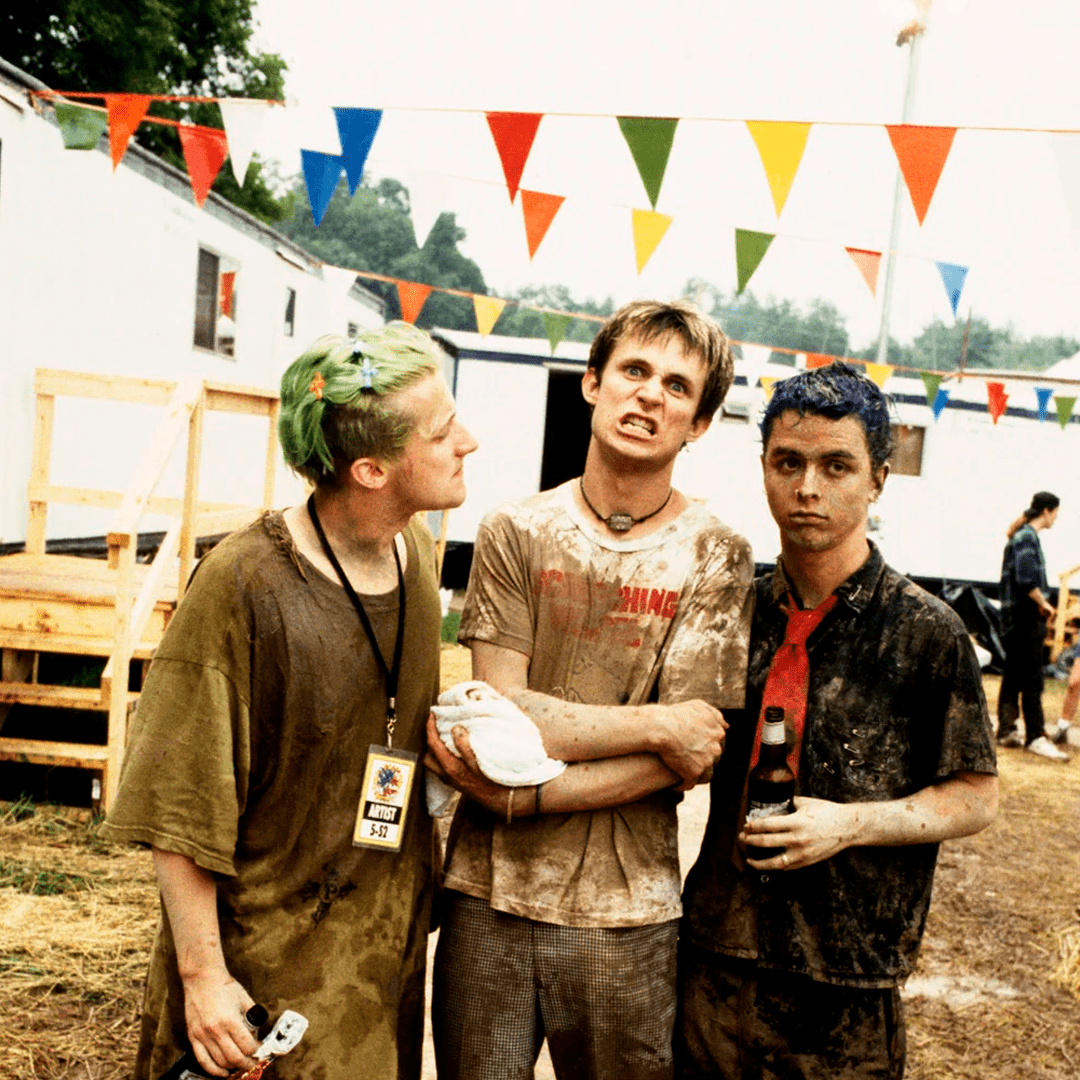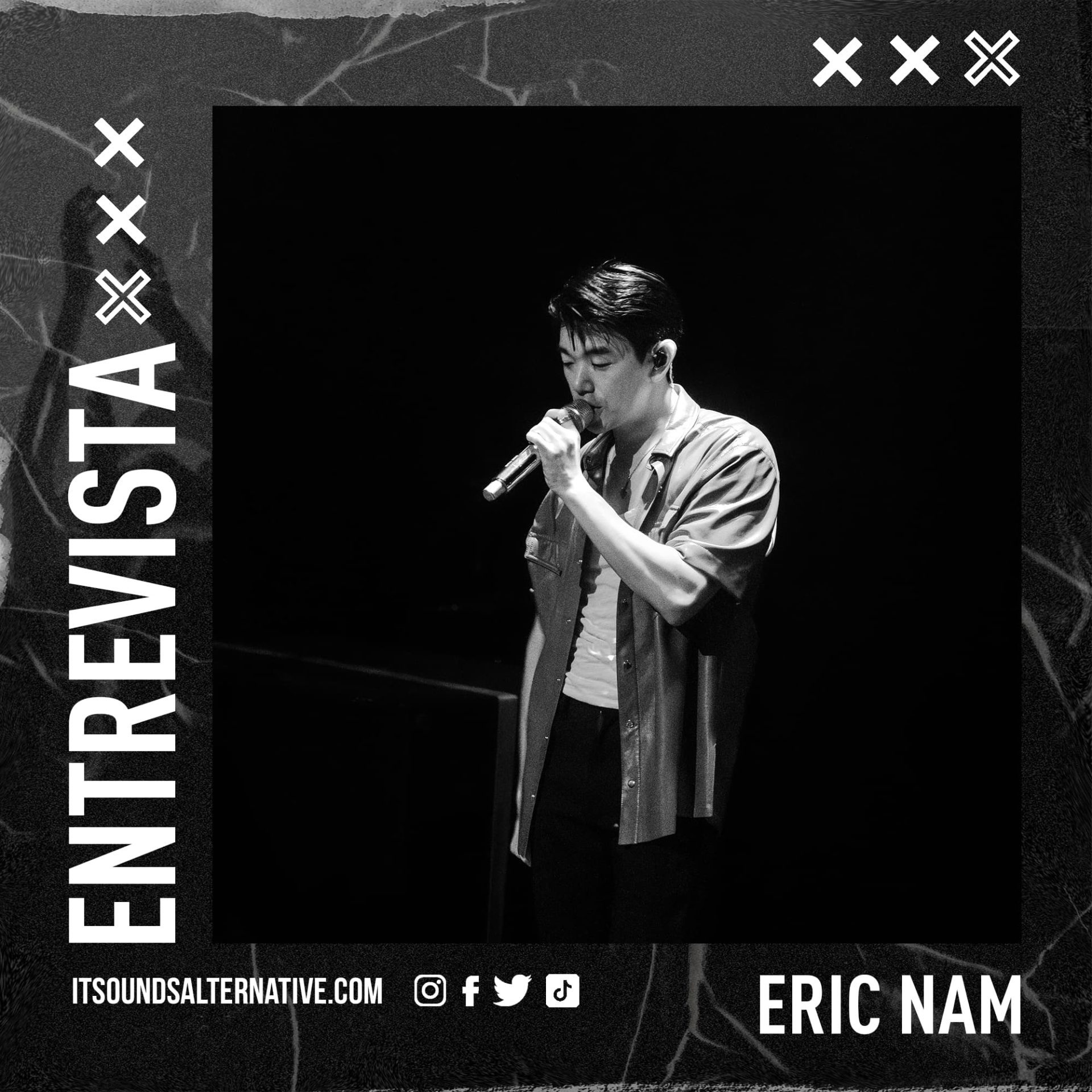
Entrevista con Eric Nam
La crisis existencial de «House on a Hill»
Entrevista por Val
Traducción por Francisca Arrué Muñoz
La tarde calurosa de día jueves nos recibió en Santiago centro, donde pudimos pasar un momento para conversar junto a Eric Nam en un Starbucks de la calle Arturo Prat. El ruido ya normal para nosotres sorprendió un poco al artista de Atlanta mientras compraba su café. Parecía relajado mientras se acomodaba, cortés, con la sonrisa encantadora que lo caracteriza, antes de que hablara con nosotres sobre su último álbum «House on a Hill», su paso por latinoamérica, y más.
¡Te invitamos a leer lo que nos contó!
ItSA: En primer lugar, ¡fue tu cumpleaños la semana pasada! Así que feliz cumpleaños de nuestra parte y de parte de cada uno de tus fans en Chile, sé que les encantaría decírtelo en persona
First of all, it was your birthday last week! So happy birthday from us and every single fan in Chile, I know they would love to tell you in person
Eric: ¡Muchas gracias!
Eric: Thank you so much.
ItSA: Esta gira te trajo aquí por primera vez, y realmente tengo que saber, ¿cómo has estado disfrutando de América Latina hasta ahora? ¿Hay algo que te guste de la cultura, la comida, etc?
This tour has brought you here for the first time, and I just need to know how you are enjoying Latin America so far? Is there anything you like about the culture, the food, etc.?
Eric: Ha sido genial. Solo he tocado en México, creo que dos veces, en ningún otro sitio, así que ha sido muy genial. Les fans latines son tan apasionades y ruidoses, digo locos de la mejor manera posible, así que ha sido muy divertido y ha sido genial. No creo que tenga tiempo de recorrer Chile. Pero siempre me ha gustado (la idea) de visitar Latinoamérica. Estoy feliz de estar de vuelta.
Eric: It’s been great. I’ve only played in Mexico, I guess twice, uhm…Nowhere else, so it’s been really cool. Latin fans are so passionate and loud and i mean crazy in the best way so it’s been a lot of fun and it’s been cool. I don’t think I’ll have time to explore chile. But I always loved (the idea) of coming to Latin America. I’m glad to be here.
ItSA: Me gustaría hablar sobre el álbum, ya que no es el sonido que esperaba. Cuando escuchas las palabras «House on a hill» piensas «lo logré en la vida, ya no tengo preocupaciones» pero las letras son muy profundas y muy cercanas a quienes estén pasando por un momento difícil. ¿Cuál es exactamente el concepto del álbum?
I want to talk about the album because it’s not the sound I expected. When you hear the words «House on a Hill» you think «I made it in life, I have no worries now» but the lyrics are so deep and very relatable to people who are going through a rough patch. What exactly is the concept of the album?
Eric: En pocas palabras, es una crisis existencial. Siento que, por una parte, tan grande de nuestras vidas nos dicen que hay que estudiar mucho, trabajar mucho, tener un buen empleo, ser exitoso y todo eso. Y creo que tiene sentido, pero al mismo tiempo también me pregunto «¿para qué?» ¿Para qué necesitamos tanto? A veces siento que buscamos más felicidad, más dinero o más éxito, Cuando posiblemente ya tengamos todo eso, quizás ya tenemos suficiente, pero buscamos tener más y más y más y más… ¿Cuándo va a ser suficiente en realidad? Y bueno… creo que el álbum, en su totalidad, cuestiona este tipo de cosas. Intenta replantear qué significa el éxito para cada quien, qué significa la felicidad para cada quien.
Eric: In one word it’s an existential crisis. I feel like for so much of our lives we’re told to study hard, work hard, get a good job, be successful, all these types of things and I think it makes sense but also, at the same time… why? Why do we need so much? Sometimes I feel like we are searching for more happiness, more money or more success. When really we may already have all of it and maybe we already have enough and when it’s having more and more and more ever going to be truly enough? And so uhm… I think the entire album kind of asks all these types of questions, tries to reframe what success means for you.
ItSA: La letra de «I wish I wasn’t me» es la que más resonó con nosotros: «I’m barely keeping breath inside my body, screaming to keep the darkness out, but monsters knock and I let them in». ¿Puedes contarnos sobre cuando escribiste esta canción?
The lyrics in «I wish I wasn’t me» were the ones that stuck with US the most: «I’m barely keeping breath inside my body, screaming to keep the darkness out, but monsters knock and I let them in» can you tell us a little bit about what or when you wrote that song?
Eric: Esa canción la escribí en Londres y, para mí… a veces cuando tengo un concierto y es uno muy bueno, siento mucha adrenalina y nos sentimos muy bien. Pero luego llego a mi habitación después y es… silencioso. Solo soy yo y pienso: «fue increíble, acabo de hacer lo que más me gusta en el mundo y ahora estoy literalmente aquí solo en esta habitación con mis pensamientos, y pienso: «¿es esta la cima de mi vida?» «¿Es esta la cima de mi carrera?». Creo que las personas, o yo, piensan de manera descontrolada, «¿esto la felicidad?, ¿así es la vida? ¿Esto es todo?». Y de la misma manera en que hay tanto bien y tanta energía positiva, también existe ese presentimiento negativo. Y bueno, habla de la especie de vacío que puede venir con lo que se piense que es el mayor éxito en el mundo.
Eric: I wrote that in London and for me, sometimes when I’m doing a show, it’s such a good show, it’s very adrenaline high and we feel great. Then I get into my green room afterward, and it’s just like quiet, it’s just me, and I’m like that’s so amazing. I just did my favorite thing in the world, and now I’m literally just alone in this room, with my thoughts. I’m like, is this the peak of my life? Is this the peak of my career? I think people, like myself, just start to spiral, is this happiness? Is this life? Is this everything? And uhm… as much as there is positive and there is good, there’s also that negative inkling. So, it speaks to kind of like the emptiness that can come with whatever you think is the biggest success in the world.
ItSA: ¿Crees que puedes sobrellevarlo bien?
Can you cope with that well, do you think?
Eric: Sí, sí. Creo que sentir esa clase de emociones es completamente normal y saludable. Pienso que… vamos por la vida sintiendo una amplia gama de sentimientos y emociones, y es mejor aceptarlo. Decir «Hey, todo bien, pero me siento un poco triste, o solo, o no me siento muy bien.» Mi trabajo es tomar momentos de mi vida o historias de mi vida y plasmarlos en forma musical y hablar sobre ellos. Eso no significa necesariamente que esté deprimido o que sea terrible o lo que sea, pero creo que todos tenemos esos momentos.
Eric: Yeah, yeah. I think things like feeling those types of emotions is completely normal, and it’s healthy I think it’s just… we live life, and we go through a range of feelings and emotions, and it’s better to acknowledge that and be like hey that’s great, but I’m like kinda sad or like I’m lonely or don’t feel good about it. My job is to take moments of my life or stories of my life and put them into I guess musical form, and it doesn’t necessarily mean that I’m depressed or horrible or anything, but I think we all have those moments and to speak to those.
ItSA: Tus fans son muy importantes para ti y es obvio que te quieren profundamente, así que nos pusimos en contacto con el equipo de Eric Nam Chile y nos enviaron una pregunta para ti en nombre del fandom: ¿Cómo influye la conexión con tus fans en tu música y en la organización de la gira, la elección del setlist y todo eso?
Your fans are very important to you, and obviously they love you very much, so we got in touch with The Eric Nam Chile Team, and they sent us a question on behalf of your fans: How does the connection with your fans influence your music and the way you arrange your tour, your setlist, all of it?
Eric: Musicalmente, para mí, siempre se ha tratado de escribir y crear canciones que, espero, resuenen con las personas. Puede que signifique una cosa para mí, pero una totalmente diferente para ti y eso está superbién. Idealmente, las personas encuentren algo con qué conectar o con lo que sentirse identificadas, escuchadas o vistas a través de la música.
En cuanto a las giras, eh… Mi objetivo siempre ha sido conocer y conectar con la mayor cantidad de fans posible alrededor del mundo. Por eso, el año pasado estuve nueve meses, y este año siete u ocho, de gira. Eso es la mayor parte de mi año. Solo viajar para ver a mis fans. Para mí es una parte realmente importante de mi vida y, ¿sabes? A veces la gente lo entiende, a veces no, pero así es como yo lo veo, como algo increíblemente importante.
En cuanto al show, siempre intento pensar en cuál es el mejor espectáculo que podemos montar, cuál es la mejor setlist, cuáles son los mejores momentos, cuáles son los mejores temas de conversación. Y todo eso cambia constantemente, show, tras show, tras show. Intentamos cosas y, en algún momento, vamos a pensar «deberíamos intentarlo de otra forma» y se siente bien hacer las cosas de forma diferente, así que siempre estamos cambiando.
Eric: Musically, I think for me, it’s always trying to write and create songs that, I hope, resonate with people. It might mean one thing to me, but it can mean something completely different to you and that’s completely fine, but hopefully people find something to connect to or relate to or feel heard or seen through music.
When it comes to the tour, uhm… My goal has been to see and meet and connect with as many fans around the world as possible, which is why last year I spent nine months on the road, this year I’m spending eight. That’s the majority of my year. I’m just traveling to go see fans. To me, it’s an incredibly important part of my life, and you know, sometimes people might understand it, some people might not, but that’s how I look at it, like it is a very important thing.
When it comes to the show, I am always trying to think what’s the best show that we can put together, what’s the best setlist, what are the best moments, what are the best talking points. They’re also always changing, it changes show, after show, after show, we try it, and maybe we’re like “maybe let’s try it differently” and it feels better differently so we’re always altering it.
ItSA: No solo eres un gran músico, sino también una personalidad de la televisión, el novio de la nación (coreana) y, además, eres muy divertido. También has entrevistado a mucha gente. ¿te gusta más cuando eres tú quien hace las preguntas o cuando te entrevistan a ti?
I know you’re not just a great musician but also a TV personality, the nation’s boyfriend, and also you’re very funny. You’ve interviewed a lot of people too, do you like it more when you’re the one asking questions or when you’re being interviewed?
Eric: Tengo mis momentos. A veces me gusta más entrevistar. Es porque… a veces naturalmente siento curiosidad por las personas con las que hablo. Y cuando me hacen preguntas a mí, pienso «¿soy importante?». Simplemente, tengo esos momentos, disfruto de ambas cosas. Pero cuando tengo algo que decir como, por ejemplo, con el álbum; o llevo tiempo queriendo decir o compartir algo, hablar de eso. Poder explicarlo se siente genial, es divertido. Las entrevistas vienen con la música. Generalmente, no doy entrevistas, a menos que sean para hablar sobre música o sobre el álbum, para dar contexto.
Eric: I have seasons, like sometimes I like being an interviewer more. It’s because I don’t… sometimes I’m just naturally curious about people that I’m talking to. And then I’m like when people ask me questions, I’m like “am I important?” I just have those moments, I don’t mind either, but when I have something to say like for example with the album, I feel like there’s something I wanted to say I wanted to share, to talk about that like I can explain it, it feels great, it’s fun. Interviews come with the music, I usually won’t do interviews unless it’s about let’s talk about music and the album to provide context.
Entonces, ¿qué es lo que sientes que tengas que decir sobre el álbum? ¿Lo más importante que quieres que tus fans sepan?
Then what is something you feel like you have to say about the album, like the most important thing that you want your fans to know
Eric: Creo que se trata de desafiar a las personas a cuestionarse qué significa la felicidad, cómo se ve o cómo se manifiesta para ellos, y a considerar que aquello que, según la sociedad, podría hacernos felices, pueda no ser la respuesta. Se trata sobre buscar y explorar qué significa para cada quién.
Eric: I think it’s about challenging people about what does happiness means or look like or manifests to them and to consider that what society tells us makes us happy might not be the answer, so it’s about finding and exploring what that means to yourself.
